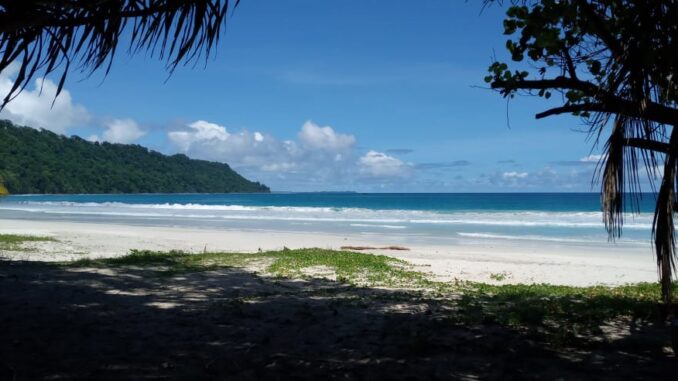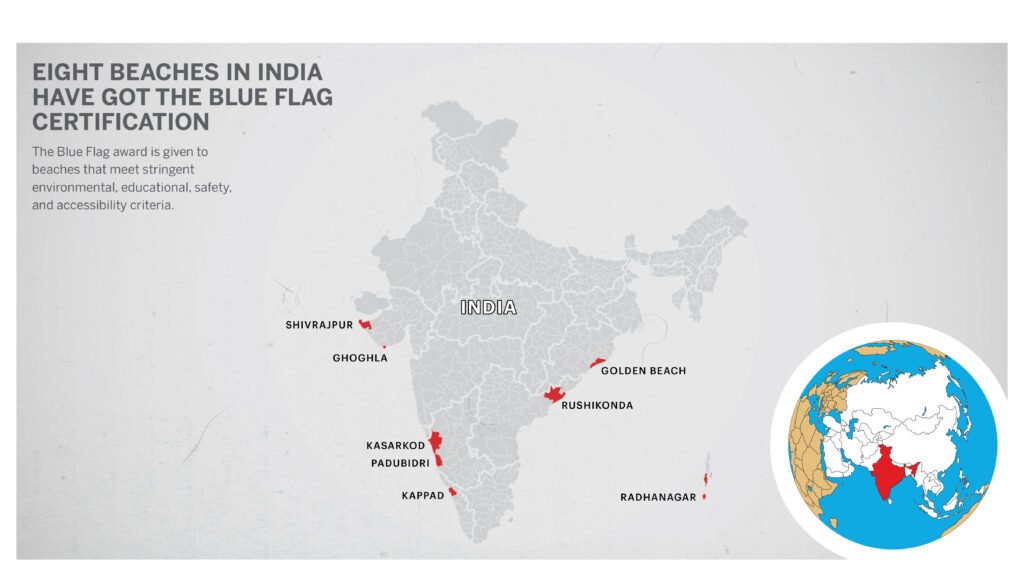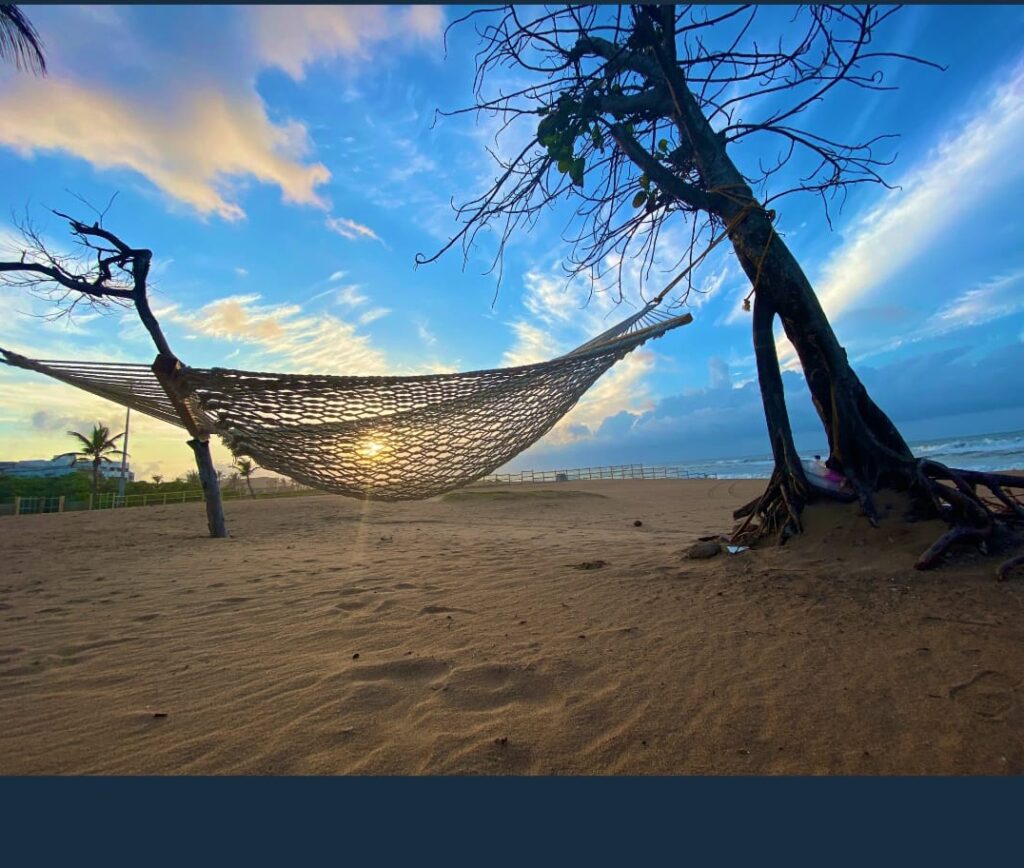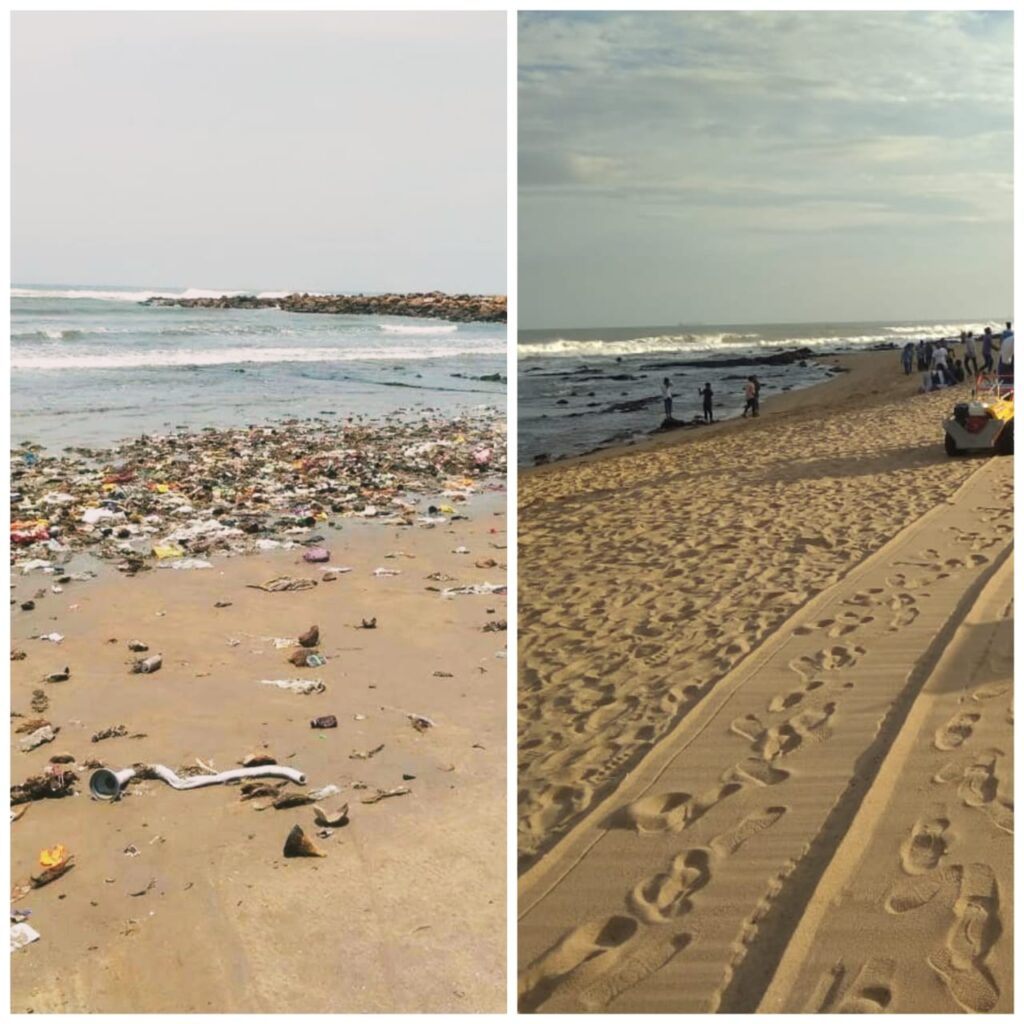
Eight beaches along India’s stunning 4670 mile (ca. 7,516 km)-long coastline have been given a Blue Flag award by the Foundation for Environmental Education in Copenhagen, Denmark. This eco-label is given for just a season, after a beach fulfills a rigorous 33-point list of environmental, educational, safety, and accessibility criteria. India now has bragging rights as one of the 50 “Blue Flag” countries in the world.

The beaches that made the cut are Shivrajpur in Gujarat, Ghoghla in Diu, Kasarkod and Padubidri in Karnataka, Kappad in Kerala, Rushikonda in Andhra Pradesh, Golden Beach (Puri) in Odisha, and Radhanagar in the Andaman and Nicobar Islands.
Many of these names may not be familiar to the western tourist acquainted with the popular beaches of Goa and Maharashtra, but an international Blue Flag certification may just remedy that with more visitors discovering these picturesque spots off the beaten track.
“It is an outstanding feat considering that no ‘Blue Flag’ nation has ever been awarded for 8 beaches in a single attempt,” said Union Minister of Environment, Forest and Climate Change Prakash Javadekar in a tweet, adding that the Blue Flag was “a global recognition of India’s conservation and sustainable development efforts.” India has also got the third prize for “International Best Practices” for pollution control in coastal regions.
In 2018, the Ministry of Environment, Forest and Climate Change (MoEFCC) identified 13 Indian beaches and set about developing them according to “Blue Flag” standards. This meant removing water pollution and dirt and debris from the beaches; developing beach amenities like toilets, paved paths, changing rooms, play areas for children, proper lighting; and improving safety standards, among other things. The 33-point checklist is divided under the heads of water quality, environmental management, environmental education and safety.

“The aim of a Blue Flag certification is not just about beautification but about protecting and conserving coastal ecosystems and natural resources, reducing the impact of human activity and promoting sustainable, responsible tourism,” says Sujeetkumar Dongre, the national operator of Blue Flag in India.
“The award will be renewed for every season based on compliance to the Blue Flag criteria. This ensures that the local government and the beach management agencies appointed by them maintain standards. We will be conducting regular checks, even surprise ones, so that we come to know of any shortfall immediately.”
Those who know Indian beaches will be aware that while they rank right up there in the natural beauty stakes, they are often woefully inadequate when it comes to basic infrastructure. So, if you intend to take a dip in the sea, or use the washroom, you may have to sprint back to your hotel to do what is necessary! It is another matter, of course, that the water is often so polluted with sewage and industrial effluents that you are at risk of falling seriously ill if you manage to swallow some while swimming.
The situation promises to be better at a Blue Flag certified beach with the list of essential criteria focussing strongly on waste management, cleanliness and water quality.

“At Rushikonda we have employed beach cleaners and bought mechanised sand cleaners to ensure that the beach is spotless,” says R Purnima Devi, the District Tourism Officer and nodal officer for the Blue Flag project at Rushikonda beach. “We have also ensured that there is no sewage discharge into this 500m stretch. As a result the seawater quality has improved significantly and that will benefit swimmers and marine life in the long run. We have also tightened security with CCTV cameras and lights.”
While the general mood after the announcement of the Blue Flag awards has been upbeat, not all states or coastal communities are as impressed. Goa, for instance, a state in western India that is known for its world-class beaches, is conspicuous by its absence from the feted list. When Goa’s Miramar beach was nominated for Blue Flag certification in February 2018, there was strong opposition from the state’s local fishing communities.
“In Goa, beaches have traditionally been used by the local coastal communities for fishing and to land their vessels,” said Olencio Simoes, the general secretary of the Goenchea Raponkarancho Ekvott, a fishermen’s association in Goa. “We cannot allow our beaches to be cordoned off from the very people who have been living on them for centuries. Secondly, we strongly oppose the fact that Coastal Regulation Zone guidelines have been relaxed to allow construction of toilets, water treatment plants and solar plants up to 10 m of the High Tide Level. This would ruin the natural beauty of our beaches completely. Besides, our beaches have been subject to severe erosion over the last few years, so creating structures on them is pointless! And have they even thought about how their mechanized sand cleaners are going to wreak havoc on marine animals like crabs that live on the beach?”
In October 2019, the high court of Bombay at Goa stayed all Blue Flag activity on Miramar beach after a public interest litigation (PIL) was filed against the MoEFCC’s decision to go ahead with the Blue Flag project without a draft notification, public hearing or inviting objections from the public.
Dongre, however, strongly objects to the contention that Blue Flag norms harm beaches in any way.
“The objective of Blue Flag is to conserve the existing natural landscape of the beaches,” he said. “Our aim is to guide the human activities of the visitors, including parking, bathing and waste management so that they are eco-friendly and safe for people, and mindful of natural beach processes. Besides, Blue Flag is suitable for all beach types. It is a misconception that Blue Flag criteria prohibits fishermen from accessing the beach. The beach sites are not located on ‘notified fishing areas’. In fact, fishermen are included in discussions about the planning of the beach area.”
(Edited by Uttaran Das Gupta and Gaurab Dasgupta.)
The post Eight Indian Beaches Get Blue Flag Award appeared first on Zenger News.






